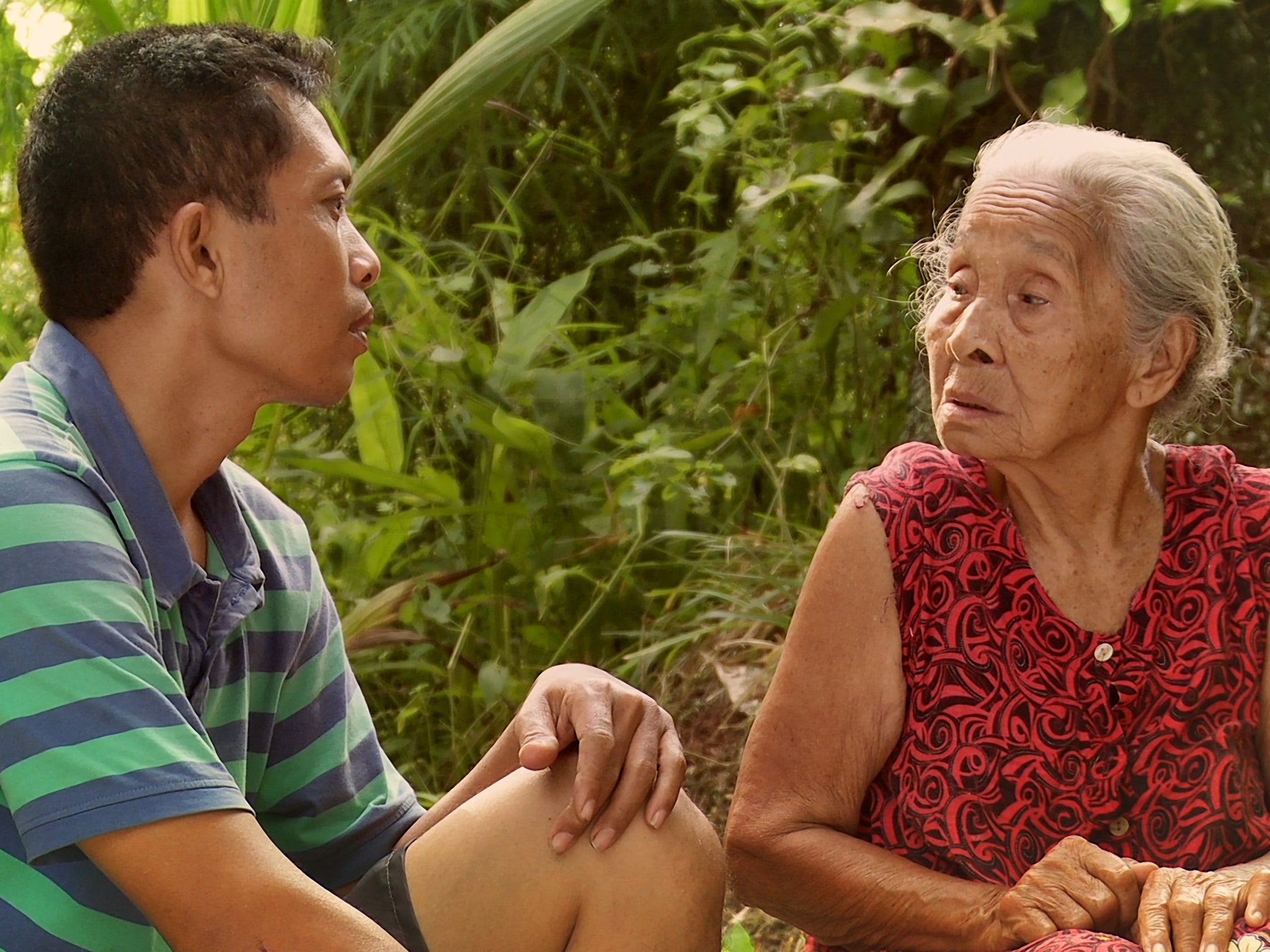The Look Of Silence, film review: A fresh eye on anguished memories of mass murder
(15) Joshua Oppenheimer, 103 mins

Joshua Oppenheimer's The Look of Silence is a gruelling film to watch and one that ought to answer the criticisms levelled at his previous feature doc, The Act of Killing. Both are investigations of the mass murder committed after the Indonesian government was overthrown by the military in 1965 and hundreds of thousands of alleged Communists were massacred.
Controversially, The Act of Killing looked at events from the perspective of the killers, who, 40 years on, were invited to recreate their misdeeds on camera as pastiche Hollywood movies. To Oppenheimer's detractors, the idea seemed in terrible taste.
By contrast, The Look of Silence comes at the same events from the perspective of a relative of one of the victims. Its main character is Adi Rukun, an optometrist whose older brother Ramli was killed in the slaughter. In patient but very anguished fashion, Adi interviews the brother's killers… and sometimes gives them eye tests as well. (This yields the surrealistic-looking imagery of elderly Indonesians wearing spectacles with multi-coloured lenses, looking like characters in a sci-fi movie.) It is painfully apparent that the killers haven't given much thought to their crimes, which they still think were justified. "Communists are cruel, Communists don't believe in God," kids are taught in school. If they are bad people, "You are allowed to hack them up."
No one admits to responsibility. However, under Adi's probing, the interviewees incriminate themselves, revealing forensic details about the killings that horrify their relatives. What becomes increasingly disturbing is the flippant way in which the killers reflect on their misdeeds. They talk about drinking their victims' blood to stop them going crazy and describe how, for a long time, no one would eat the fishes from Snake River because that was where the corpses were dumped.
The rest of the world hasn't paid much attention to the mass killings in Indonesia in the mid-1960s. The fact that those who encouraged the crimes remained in power meant that there was never any truth and reconciliation process. Oppenheimer's two films have served to jog memories and to force the killers to acknowledge their actions.
Join our commenting forum
Join thought-provoking conversations, follow other Independent readers and see their replies
Comments
Bookmark popover
Removed from bookmarks